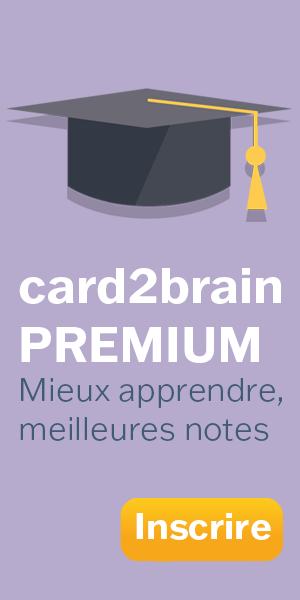Economics
Flashcards
Flashcards
Fichier Détails
| Cartes-fiches | 103 |
|---|---|
| Langue | English |
| Catégorie | Culture générale |
| Niveau | Collège |
| Crée / Actualisé | 28.08.2015 / 23.11.2016 |
| Lien de web |
https://card2brain.ch/cards/economics1
|
| Intégrer |
<iframe src="https://card2brain.ch/box/economics1/embed" width="780" height="150" scrolling="no" frameborder="0"></iframe>
|
They're desires that can be satisfied by consuming a good or a service.
They're things that are necessary for survival.
It exits when there are not enough resources to satisfy human wants.
It's the study of how individuals and societies satisfy their unlimited wants with limited resources.
Physical objects that can be purchased such as food, clothing, and furniture.
Work that one person performs for another pay
A person who buys goods or services for personal use.
Person who makes goods or provides services.
Economic resources needed to produce goods and services.
Natural resources found on or under the ground that are used to produce goods and services.
All the human time, effort, and the talent that go into making the products.
All the resources made and used by people to produce and distribute goods and services.
Combination of vision,skill, ingenuity, and willingness to take risks that is needed to create and run a new business.
They are methods used to encourage people to take certain actions.
The benefit or satisfaction received from using a good or service.
To make decisions according to the best combination of costs and benefits.
The alternative people give up when they make choices.
The value of something that is given up to get something else that is wanted.
An approach that weighs the benefits of an action against its costs.
The additional cost of using one more unit of a product.
The additional satisfaction from using one more unit of a product.
A simplified representation of economic forces.
A graph used by economists to show the impact of scarcity on an economy.
It involves producing the maximum account of goods and services possible.
It means producing fewer goods and services than possible.
It states that as production switches from one product to another, increasing amounts of resources are needed to increase the production of the second product.
They're information in numerical form.
The study of individuals, families, and businesses in an economy.
The study of the economy as a whole and is concerned with large-scale economic activity.
It studies economic behavior as it is.
It involves judgements of what economic behavior ought to be.
The way a society uses resources to satisfy it's people's wants.
An economic system in which people produce and distribute goods according to customs handed down from generation to generation.
An economic system in which the government makes all economic decisions.
An economic system in which individual choice and voluntary exchange direct economic decisions.
A system in which central government officials make all economic decisions.
An economic system in which the government owns some or all factors of production.
An economic system in which the government owns all the factors of production and there is a little or no political freedom.
Systems that require absolute obedience to those in power.
The rigths of individuals and groups to own businesses and resources.










